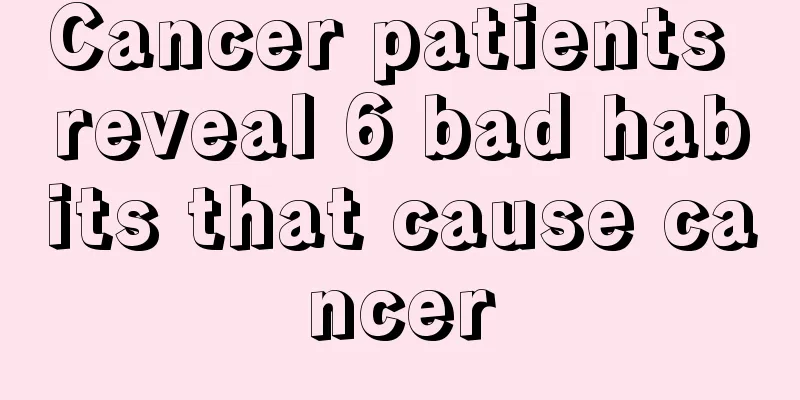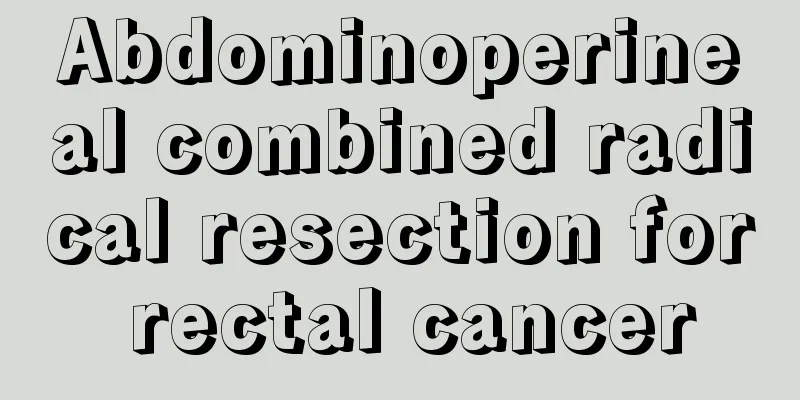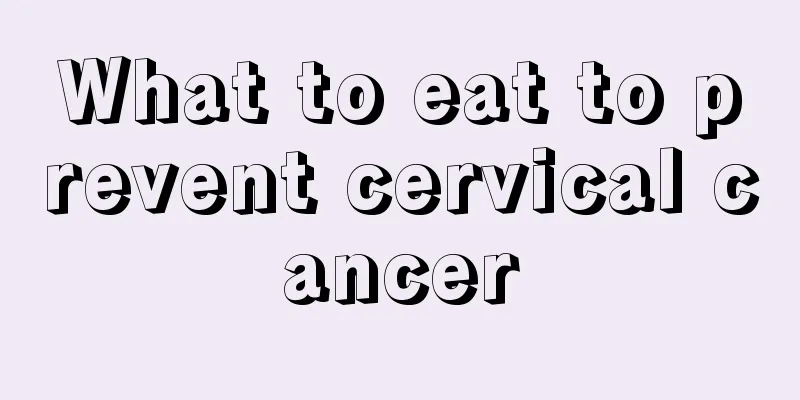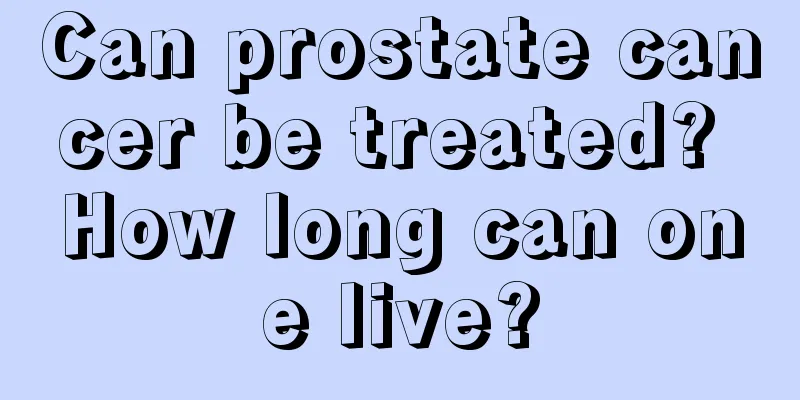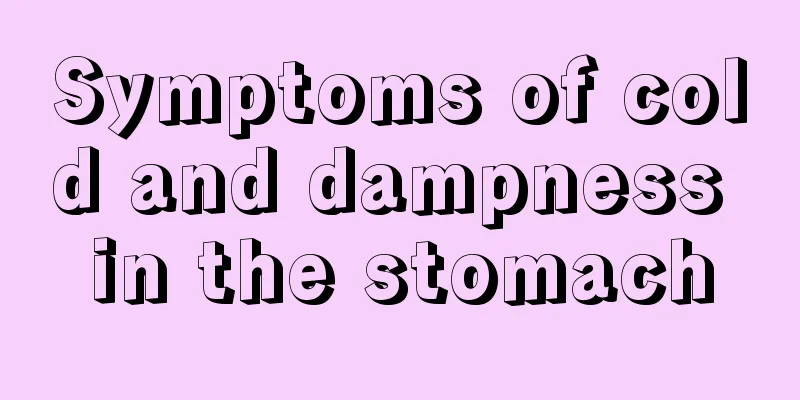How to effectively treat high blood pressure?
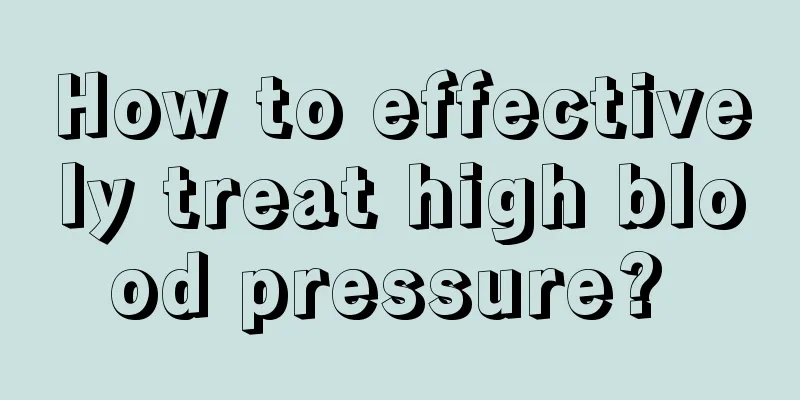
|
Hypertension is very harmful to the human body. Although it is a common disease, many people are still troubled by this disease. This is a disease that requires long-term attention. The patient's emotions cannot fluctuate, and the diet must be reasonably controlled. Once the patient is mentally stimulated, the blood pressure will gradually rise, and severe cases may even affect life. If you don’t understand, you can continue to pay attention to how to effectively treat hypertension. 1. Treatment objectives and principles The ultimate goal of antihypertensive treatment is to reduce the incidence and mortality of cardiovascular and cerebrovascular diseases in patients with hypertension. Antihypertensive treatment should establish blood pressure control target values. On the other hand, hypertension often coexists with other risk factors for cardiovascular and cerebrovascular diseases, such as hypercholesterolemia, obesity, diabetes, etc., which synergistically increase the risk of cardiovascular disease. Treatment measures should be comprehensive. (1) Improve lifestyle behaviors ① Lose weight. ②Reduce sodium intake. ③Supplement calcium and potassium salts. ④Reduce fat intake. ⑤Increase exercise. ⑥Quit smoking and limit drinking. (2) Individualization of blood pressure control standards Due to different causes and different pathogenesis of hypertension, clinical medication should be treated differently to select the most appropriate drug and dosage to obtain the best therapeutic effect. (3) Collaborative control of multiple cardiovascular risk factors: Although blood pressure is controlled within the normal range after antihypertensive treatment, multiple risk factors other than elevated blood pressure still have an important impact on prognosis. 2. Antihypertensive drug treatment (1) Types of antihypertensive drugs: ① Diuretics. ②β-receptor blockers. ③Calcium channel blockers. ④Angiotensin-converting enzyme inhibitors. ⑤Angiotensin II receptor blockers. (2) Treatment plan: Most patients without complications or comorbidities can use thiazide diuretics, beta-blockers, etc. alone or in combination. Treatment should start with a low dose and increase gradually. In actual clinical use, the patient's cardiovascular risk factors, target organ damage, complications, comorbidities, antihypertensive efficacy, adverse reactions, etc. will all affect the choice of antihypertensive drugs. Patients with stage 2 hypertension can be treated with a combination of two antihypertensive drugs from the beginning. Regarding the treatment of hypertension, you must pay attention to many aspects in your daily life, don't be too happy or sad, don't be too excited, and exercise appropriately. Many patients with hypertension will later develop cardiovascular and cerebrovascular diseases, so everyone should pay attention to it, go to the hospital for examination, and take antihypertensive drugs on time if necessary. I hope the above content will be helpful to everyone. |
<<: What should I do if my child has gastrointestinal discomfort?
>>: What are the disadvantages of wearing underwear when sleeping at night?
Recommend
Why does abdominal bloating occur
I believe that abdominal bloating is something th...
Can non-small cell lung cancer be cured
Compared with small cell lung cancer, non-small c...
Is it better to use expanded polytetrafluoroethylene or silicone for the chin?
Everyone loves beauty. We all know that the shape...
How long does it take to boil frog parasites for them to die
Game is a favorite ingredient of many gourmets. B...
Introduction on whether nasopharyngeal carcinoma can be cured in the early stage
For patients with early nasopharyngeal carcinoma,...
What to do if new flesh itch
I believe many people have heard of an advertisin...
Can patients with thyroid cancer sweat steam after subtotal thyroidectomy
Subtotal thyroidectomy generally refers to partia...
Winter dates and bananas
There are very few fruits that can be eaten in wi...
What's wrong with chicken skin on the buttocks
The skin on the buttocks is the most tender part....
What shoes look good on a short person
Even though the living standards are getting high...
How to seize the time to treat the early symptoms of colon cancer
It is crucial to treat the early symptoms of colo...
How to relieve headaches caused by overuse of the brain?
For today's young people, the term "over...
Experts explain the main characteristics of bladder cancer hematuria
Patients with bladder cancer often experience hem...
The main symptom of rectal cancer is manifested in bowel movements
The main symptom of rectal cancer is in the stool...
What shampoo oil should I use to make my hair smooth and shiny
In daily life, everyone has to wash their hair, b...
